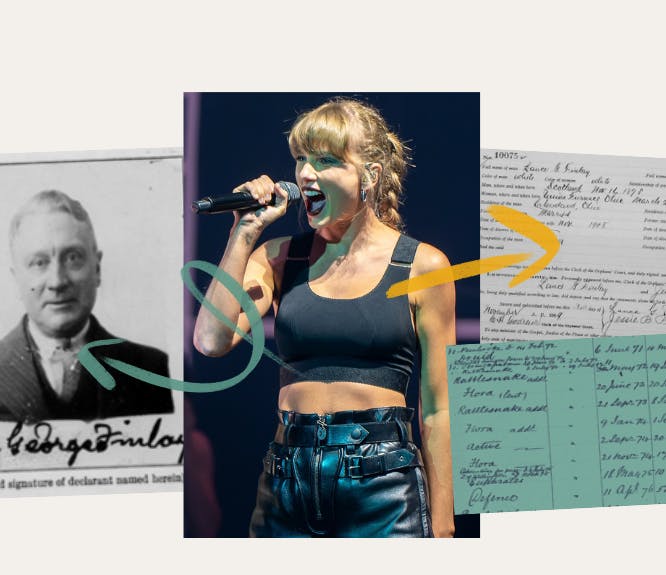My grandfather's World War 2 diaries have brought his incredible experiences to life
4-5 minute read
By Ellie Ayton | January 11, 2021
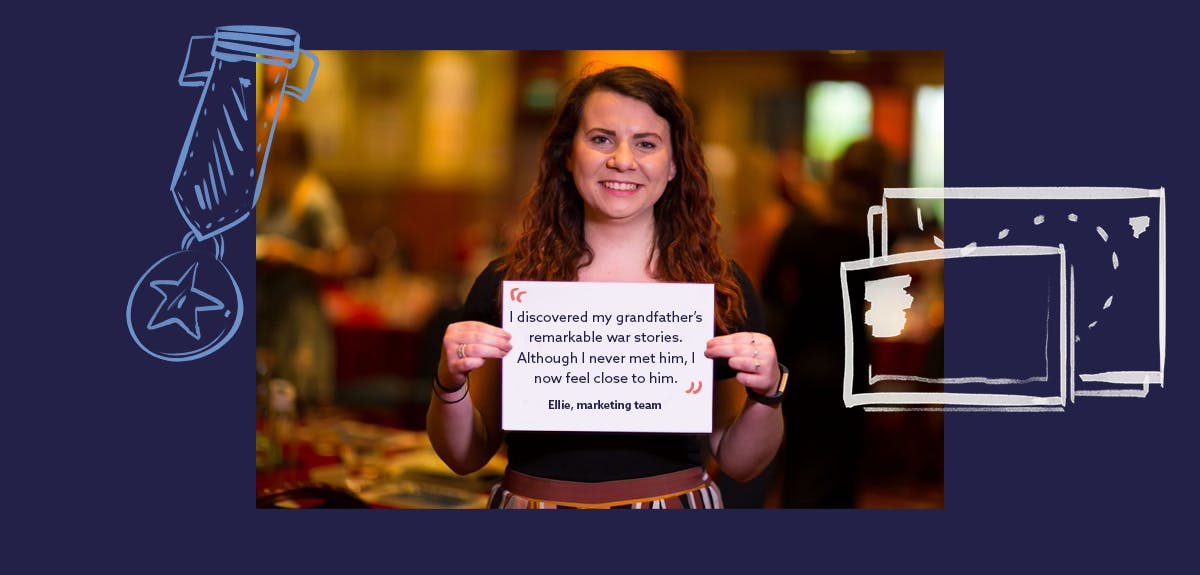
One of the golden rules of family history is to speak to your relatives about what they know. By speaking to her aunt and uncle, Findmypast’s Ellie uncovered the military career of the grandfather she never knew.
I never knew much about my paternal grandfather. He sadly died in 1960 of a burst stomach ulcer, leaving behind my nana as a mother to four children, including my father aged 18 months. Only by speaking to my family have I learned more about him and his experiences of the Second World War.
I’m fortunate my late father kept so many photographs of him. My uncle has a war diary, which has given me valuable insight into my grandfather’s war experiences. Without this, the photographs and my relatives’ stories, my grandfather would have been completely lost to me.
Learning the basics
Cecil Dennis Jones was born in north Wales in 1918, son of Robert Thomas Jones and Nellie Griffiths Rogers. Robert was a miner. In the 1930s the family moved to Rhyl to begin a life away from the mining industry. The Second World War raged for 12 months before Dennis enlisted in Swansea, on 30 September 1940, fifty years to the day before I was born. A few months later, he married my nana, Eileen.
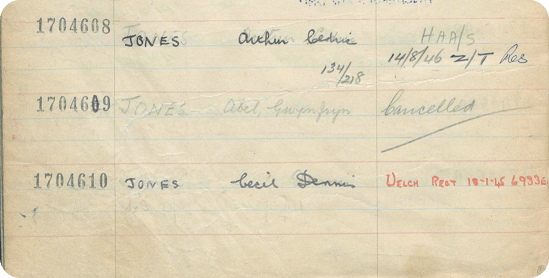
Cecil Dennis Jones, listed in Findmypast's Royal Artillery Attestations 1883-1942.
On his attestation, Dennis was listed as 5’7” tall, weighed 138 lbs, with a fair complexion, light brown eyes and dark brown hair.
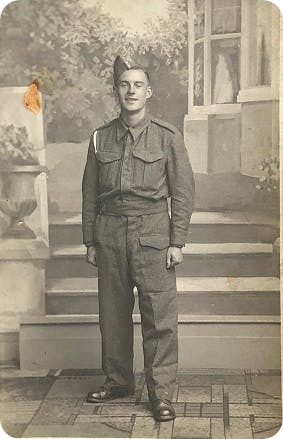
Dennis’ enlistment photograph, aged 22, taken in Swansea.
Already, I was building a picture of the grandfather I never knew.
War stories
During the Second World War, my grandfather served with the 65th Battery, 34th Light Anti-Aircraft Regiment, Royal Artillery as Gunner 1704610. They trained at Ollerton, and then the Battery headed to Glasgow, embarking on the SS Oronsay. Their six-week voyage took them to Port Tewfik at the southern end of the Suez Canal, stopping at Freetown and Capetown, and arrived on 2 September 1942. This vital information was recorded in his war diary.
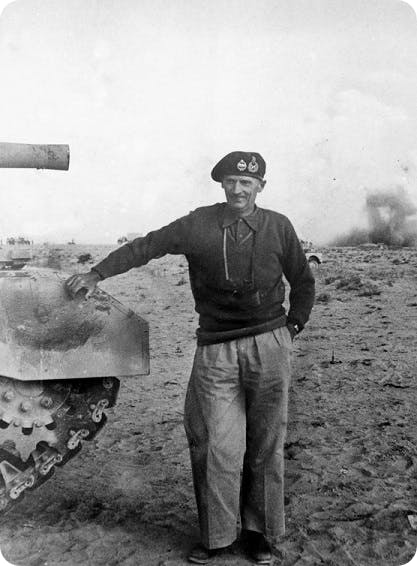
General Montgomery posing for a photograph on the El Alamein battlefield, November 1942, found in the Findmypast Photo Collection.
Dennis served in General Montgomery’s Eighth Army in Egypt, affectionately known as the Desert Rats. He saw action at the Second Battle of El Alamein (23 October – 11 November 1942) and experienced the conclusion of the north African campaign.
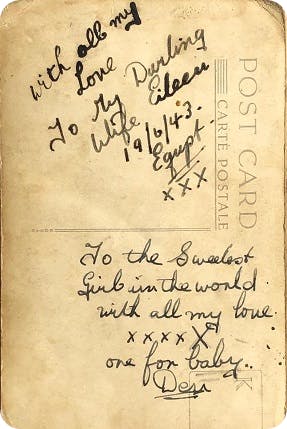
The reverse of a postcard Dennis sent to his wife Eileen from Egypt, 1943. By this point, their first child Mary Audrey had been born (1942). Dennis wouldn’t meet his daughter until he returned home in 1945.
The Battery left north Africa from Bizerta on Christmas Eve in 1943, heading for Italy, as recorded in his war diary. They arrived at Naples on 27 December.
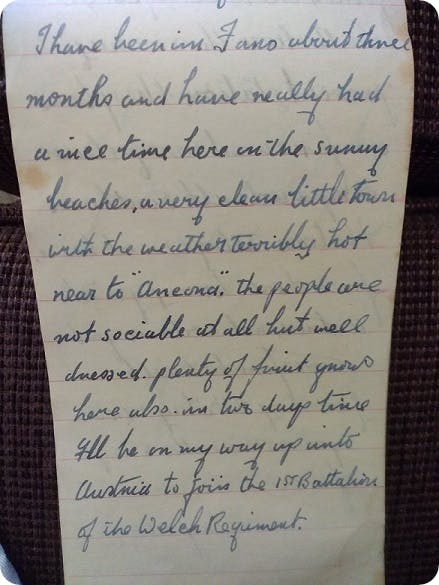
On 3 July 1945, Dennis wrote about the hot weather, the beaches and the fruit in Italy, in addition to the ‘not sociable’ but ‘well dressed’ people.
His diary goes on to detail his involvement in the Italian campaign in Barletta on the Adriatic Coast.
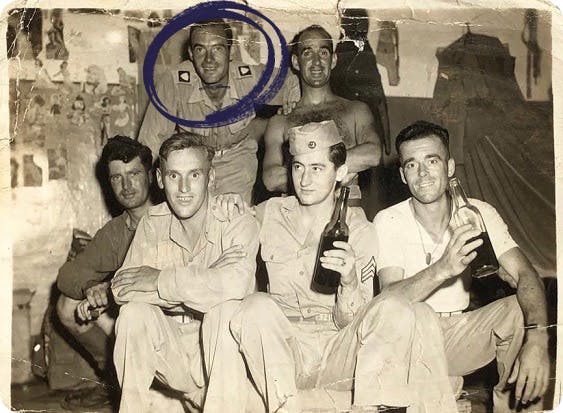
My grandfather, top left, in either Egypt or Italy.
His Bofors 40mmm anti-aircraft gun was mounted on Barletta Castle, and the Battery remained there, until they headed to Bari in June 1944. In December, they moved to Taranto until the end of 1944.
A personal testimony
Dennis regularly sent photographs and letters home. The back of this World War 2 letter read;
" "My darling Eileen, I’m afraid it’s not so very good but hope to have some better ones tonight. In case you don’t know me I’m at the back. Feeling a bit light but don’t worry it’s not a regular habit. I’m always loving you and wishing this war will end. Chins up keep a big smile it won’t be long now. All my love to you and our little Audrey. So glad you are both in good health.""
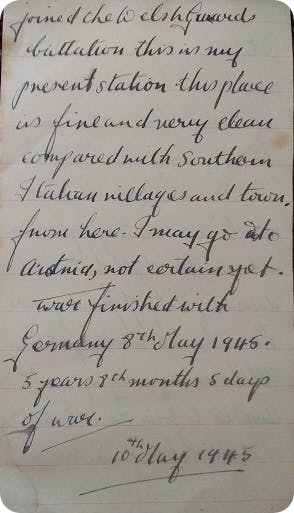
Later, Dennis noted in his war diary;
""War finished with Germany 8th May 1945. 5 years, 8 months, 5 days of war. 10th May 1945.""
He was awarded the Defence Medal, the 1935-45 War Medal with Star, the Italian Star and the Africa Star with 8th Army. What struck me in the photos of him is just how much he appeared to age during 5 years of warfare. After demobilisation, he returned to the building trade. By the time of his death, Dennis was proud of his growing, respectable business, C.D. Jones & Sons, named for his sons Peter and Geoffrey.
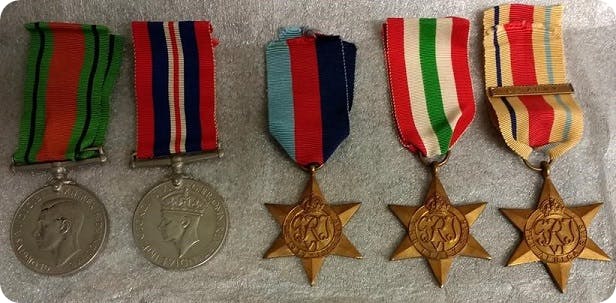
Dennis’ medals.
If I had not spoken to my aunt and uncle, I wouldn’t know anything about Dennis. I wouldn’t know that he was away from his family for four years during the Second World War, or that he kept deeply personal and detailed war diaries. He wrote about the kindness of strangers, the food, the landscapes: an emotional insight into the soldier experiences of a man I never knew. I’m indebted to my aunty Lynn and uncle Peter, Dennis’ living children, for sharing this story with me. My aunt recalls that Dennis saw people searching dustbins for food in Italy, and hated food waste. In particular, he spoke about how precious water was during his time in North Africa. He was asked to re-enlist as a trainer after demobilisation. He declined. I feel like I know him better now.
Take the time to speak to your relatives and tell the stories of your military ancestors. Then, share your discoveries with #FindmypastFeatured on social media.
Related articles recommended for you
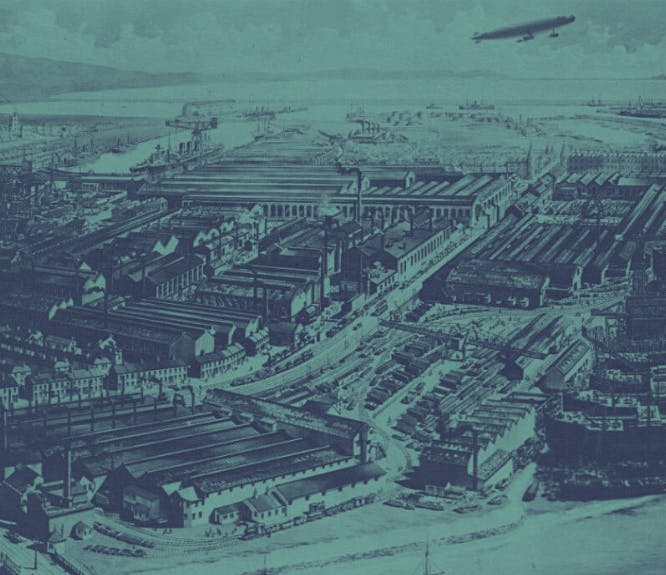
The history of the Barrow-in-Furness Shipyard
History Hub
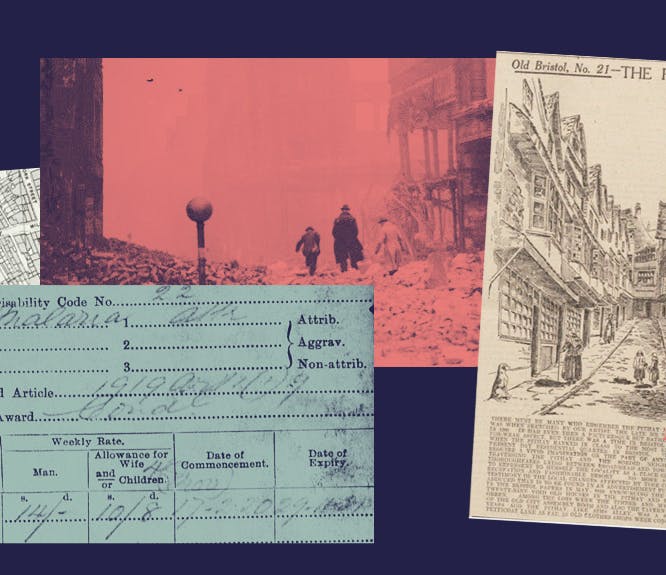
Finding Eli: A granddaughter’s story
Discoveries

More footballers in the family? Jack Grealish’s family tree
Discoveries
